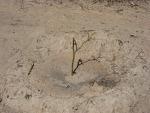This is the script of this morning’s Thought for the Day on BBC Radio 4’s Today programme:
“April is the cruellest month” is how TS Eliot began The Wasteland – written in the wake of the 1918 Spanish Flu pandemic. Well, this April presents challenges that no post-war generation would have considered even conceivable only a couple of months ago.
A few years ago I was in another place that knew something of suffering and hardship. Robert Mugabe’s Zimbabwe had gone from being the breadbasket of Africa to what can only be described as a basket case. Inflation was running at over ten thousand per cent and the infrastructure in the country was broken. So were many of the people we met.

But, then one of our group – a Zimbabwean – asked why they needed fences. Instead, why not get the neighbours to pay a small fee to have their cattle dipped – that would mean that all the cattle would be clean, no infections would intrude onto the farm, money wouldn’t be wasted on easily breached fences, and the farm would gain a little income.
I stood there wondering why I hadn’t thought of this. Instead of closing down, the best response was to open up. The best defence was to support the interests of the neighbours.
This shouldn’t have surprised me. The Hebrew Scriptures tell how a people prepare to enter the land of promise. But, before going in they are told that the society they shape must be one in which everyone counts – in which “loving one’s neighbor as oneself” (which Jesus quoted much later) was a command and not a policy suggestion. Peace and prosperity could only be secured if the mutual interests and accountabilities of all were promoted and defended. Counter-intuitive it may well be, but God’s call to look after the interests of those who are poor, marginalised, homeless and strange was essential. Only if they were cared for could the new society be considered just or godly.
A society that thinks it can secure itself by excluding (or, even, scapegoating) others simply erects fences. And as the world eventually moves into a post-pandemic world, big choices will have to be faced – and the cattle dip might offer a lens through which to look at them.
